© copyright stannes4/2000
Page 1
May 11th, 2003
Fourth Sunday of Easter


|
Schedule of Masses Week of May 12th - May 18th, 2003 |
|||
|
Day |
Time |
Requested for |
Requested by |
|
Mon 5/12 |
7 A.M. |
Ernesto Voza |
Virginia Sarni |
|
9A.M. |
Rosalie Benner |
Romano Family |
|
|
Tues 5/13 |
7 A.M. |
Bridget T. Mulkeen |
Thomas & Family |
|
|
9 A.M. |
Helen Wilkins |
Family |
|
Wed 5/14 |
7A.M. |
Carmela A. Bevacqua |
Sue Silvia |
|
|
9A.M. |
Liv. Staranka Sisters |
Frances & Bruno Spazian |
|
|
7P.M. |
Margaret Minan |
Christina Burke |
|
Thurs 5/15 |
7AM. |
Honor of St. Dymphna |
Assunta Fusco |
|
|
9A.M. |
Mary & Thomas E. Doyle |
Children |
|
Fri. 5/16 |
7AM |
Stella Gaydosh |
Agnes Ferrara |
|
|
9A.M. |
Lucille Cherry |
Family |
|
Sat. 5/17 |
9 A.M. |
Special Intention |
|
|
|
6P.M. |
Herbert Hartmann |
Isabelle & Charlotte |
|
7:30 P.M. |
For the People of the Parish |
||
|
Sun. 5/18 |
7:30AM |
James Mocarski | Family |
| 9 AM | Virginia Chiara | Family | |
|
10:30AM |
Thomas Russo | Grace | |
|
12 PM |
Karolina Grunt | Lenore & Murray Greiman | |
|
Sanctuary Gifts May 11th - May 17th, 2003 |
||
|
Gift |
In Memory Of |
Requested By |
|
Altar Wine |
Lucie McNulty |
McNulty Family |
|
Altar Bread |
Lucie McNulty |
McNulty Family |
|
Sanctuary Lamp |
Socorro Kennedy |
Choir |
|
Altar Candles |
Lucie McNulty |
McNulty Family |
Let Us
Pray For Those Seriously Ill
![]() Frances
Muzikar, Joan Wheeler, Angela
Krajnik, John Brawer, Richard Carlson, Cecilia Villanueva, James McGrath.
Frances
Muzikar, Joan Wheeler, Angela
Krajnik, John Brawer, Richard Carlson, Cecilia Villanueva, James McGrath.
Vocation reflections
 On
World Day of Prayer for Vocations, we hear the words of the Good Shepherd who
knows his sheep and his sheep know
him. Won’t
you heed the call of the Good Shepherd and follow him as a priest, deacon,
sister or brother?
On
World Day of Prayer for Vocations, we hear the words of the Good Shepherd who
knows his sheep and his sheep know
him. Won’t
you heed the call of the Good Shepherd and follow him as a priest, deacon,
sister or brother?
If you feel this call, “inquire within” and Please contact the Vocations Office the Vocations Office at (973) 497-4365 or by E-mail at kellyric@rcan.org. Or visit our web site at www.rcan.org.
![]()
Page 2 Top

SCRIPTURE
REFLECTION
Jesus
is the “cornerstone rejected by the builders which has become the
cornerstone”. He is the good
shepherd who laid down his life for us. Through
his paschal mystery we have become children of God.
Our Weekly Offering
May 2003
May 3/4 $ 5,540.
Month’s Total $ 5,540.
Month’s Average $ 5,540.
Mailed in, thank you
$ 326.
![]()
MONTHLY AVERAGE COMPARISONS:
Month ‘02 Monthly
Avg. ‘03 Monthly Avg.
April
$5,496.
$21,564.
May $5,260.
![]()
![]()
![]()
![]()
HOLY
HOUR FOR PRIESTS

Every Tuesday the Blessed Sacrament is exposed in the church from 3 to 4 p.m. It is an hour of prayer for the priests, DIVINE MERCY and religious men and women of the church. Prayers are also said for an increase of vocations to the priesthood and religious life.
We invite you to come and spend time with the Lord for these intentions and for your personal requests. The Holy Hour closes with Benediction of the Blessed Sacrament. If you cannot join us in church, we ask you to join us from a quiet spot in your home and pray with us, asking the Lord to guide and protect our priests.
![]()
![]()
![]()
![]()
Second Collection
Next weekend will be the collection for Communicating God’s Word. Please contribute generously.
Padre Pio 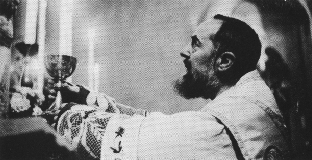
Next gathering for Padre Pio Prayer Group will be Saturday, May 17th with prayers at 2 p.m. in church followed by meeting in auditorium. Will discuss upcoming trip.

Gift
Wheel
As in the past years, the Padre Pio and St. Joseph Prayer Groups will be sponsoring a booth at St. Anne’s Festival. Donations of new/unused gifts will be gladly accepted. If you feel you do not have the time to shop, monetary donations will also be gladly accepted. Items or donations can be dropped off at the rectory marked “St. Joseph Prayer Group”. |
page 3
Our Web Site
When you log
on and browse around you’ll see all kinds of information about our parish.
Included, of course, will be the current activities for the many different
organizations as well as an update as to what is going on with our parish
family.
Do not let evil defeat you: Instead,
conquer evil with good!!
By your wounded heart: teach us love, teach us love, teach us love..... -Daphne Fraser
Congratulations
St. Anne’s Parish Family welcomes the following children who received First Holy Communion during these past three Sundays of Easter. They will receive as a Group on Saturday, May 17th at 10 a.m.:

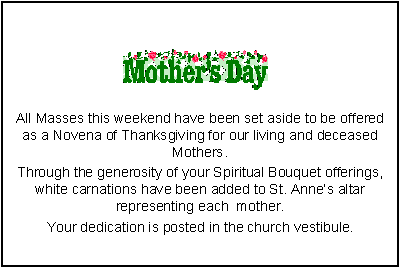
CCD NEWS
· Tickets
for Closing Social will be sent home today.
· Mass
for Group Communion on May 17th will be at 10 a.m.
· Teachers’
Meeting to fill in record cards May 13th in PC#3 with a potluck supper.
· Registration
forms are asked to be in by end of May so books can be ordered by June 1st.
· Reservations
still being accepted for “Villa Roma”
in the Catskills - June 22-27.
|
To
All Fellow Parishioners, Simply
to say “thank you” seems so inadequate.
Since the fire of March 21st, we, the Rowan Family, have known
your love, support and many prayers.
Join us in giving thanks for all our many blessings. We shall
rebuild and remain in this loving community. We rise again from ashes! Every
grace and blessing,
The Rowan Family
Betty,
Mark, Sr. Margaret & Pushka (our dog)
|
Top page 4
This
article is continued from last Sunday -
Ecclesia
De Eucharistia
of
His Holiness Pope John Paul II to the Bishops Priests and Deacons Men and Women in the Consecrated Life and All the Lay Faithful
on the Eucharist in Its
Relationship to the Church
Libreria Editrice Vaticana Vatican City
Chapter
Four
The Eucharist and
Ecclesial Communion
34.
The Extraordinary Assembly of the Synod of
Bishops in 1985 saw in the concept of an "ecclesiology of communion"
the central and fundamental idea of the documents of the Second Vatican
Council.67 The Church is called during her earthly pilgrimage to maintain and
promote communion with the Triune God and communion among the faithful. For this
purpose she possesses the word and the sacraments, particularly the Eucharist,
by which she "constantly lives and grows" 68 and in which she
expresses her very nature. It is not by chance that the term communion has
become one of the names given to this sublime sacrament.
The
Eucharist thus appears as the culmination of all the sacraments in perfecting
our communion with God the Father by identification with his only-begotten Son
through the working of the Holy Spirit. With discerning faith a distinguished
writer of the Byzantine tradition voiced this truth: in the Eucharist
"unlike any other sacrament, the mystery [of communion] is so perfect that
it brings us to the heights of every good thing: here is the ultimate goal of
every human desire, because here we attain God and God joins himself to us in
the most perfect union".69 Precisely for this reason it is good to
cultivate in our hearts a constant desire for the sacrament of the Eucharist.
This was the origin of the practice of "spiritual communion", which
has happily been established in the Church for centuries and recommended by
saints who were masters of the spiritual life. Saint Teresa of Jesus wrote:
"When you do not receive communion and you do not attend Mass, you can make
a spiritual communion, which is a most beneficial practice; by it the love of
God will be greatly impressed on you".70
35.
The celebration of the Eucharist, however,
cannot be the starting-point for communion; it presupposes that communion
already exists, a communion which it seeks to consolidate and bring to
perfection. The sacrament is an expression of this bond of communion both in its
invisible dimension, which, in Christ and through the working of the Holy
Spirit, unites us to the Father and among ourselves, and in its visible
dimension, which entails communion in the teaching of the Apostles, in the
sacraments and in the Church's hierarchical order. The profound relationship
between the invisible and the visible elements of ecclesial communion is
constitutive of the Church as the sacrament of salvation.71 Only in this context
can there be a legitimate celebration of the Eucharist and true participation in
it. Consequently it is an intrinsic requirement of the Eucharist that it should
be celebrated in communion, and specifically maintaining the various bonds of
that communion intact.
36.
Invisible communion, though by its nature
always growing, presupposes the life of grace, by which we become
"partakers of the divine nature" (2 Pet 1:4), and the practice of the
virtues of faith, hope and love. Only in this way do we have true communion with
the Father, the Son and the Holy Spirit. Nor is faith sufficient; we must
persevere in sanctifying grace and love, remaining within the Church
"bodily" as well as "in our heart"; 72 what is required, in
the words of Saint Paul, is "faith working through love" (Gal 5:6).
Keeping
these invisible bonds intact is a specific moral duty incumbent upon Christians
who wish to participate fully in the Eucharist by receiving the body and blood
of Christ. The Apostle Paul appeals to this duty when he warns: "Let a man
examine himself, and so eat of the bread and drink of the cup" (1 Cor
11:28). Saint John Chrysostom, with his stirring eloquence, exhorted the
faithful: "I too raise my voice, I beseech, beg and implore that no one
draw near to this sacred table with a sullied and corrupt conscience. Such an
act, in fact, can never be called 'communion', not even were we to touch the
Lord's body a thousand times over, but 'condemnation', 'torment' and 'increase
of punishment'".73
Along
these same lines, the Catechism of the Catholic Church rightly stipulates that
"anyone conscious of a grave sin must receive the sacrament of
Reconciliation before coming to communion".74 I therefore desire to
reaffirm that in the Church there remains in force, now and in the future, the
rule by which the Council of Trent gave concrete expression to the Apostle
Paul's stern warning when it affirmed that, in order to receive the Eucharist in
a worthy manner, "one must first confess one's sins, when one is aware of
mortal sin".75
37.
The two sacraments of the Eucharist and Penance
are very closely connected. Because the Eucharist makes present the redeeming
sacrifice of the Cross, perpetuating it sacramentally, it naturally gives rise
to a continuous need for conversion, for a personal response to the appeal made
by Saint Paul to the Christians of Corinth: "We beseech you on behalf of
Christ, be reconciled to God" (2 Cor 5:20). If a Christian's conscience is
burdened by serious sin, then the path of penance through the sacrament of
Reconciliation becomes necessary for full participation in the Eucharistic
Sacrifice.
The
judgment of one's state of grace obviously belongs only to the person involved,
since it is a question of examining one's conscience. However, in cases of
outward conduct which is seriously, clearly and steadfastly contrary to the
moral norm, the Church, in her pastoral concern for the good order of the
community and out of respect for the sacrament, cannot fail to feel directly
involved. The Code of Canon Law refers to this situation of a manifest lack of
proper moral disposition when it states that those who "obstinately persist
in manifest grave sin" are not to be admitted to Eucharistic communion.76
38.
Ecclesial communion, as I have said, is
likewise visible, and finds expression in the series of "bonds" listed
by the Council when it teaches: "They are fully incorporated into the
society of the Church who, possessing the Spirit of Christ, accept her whole
structure and all the means of salvation established within her, and within her
visible framework are united to Christ, who governs her through the Supreme
Pontiff and the Bishops, by the bonds of profession of faith, the sacraments,
ecclesiastical government and communion".77
The
Eucharist, as the supreme sacramental manifestation of communion in the Church,
demands to be celebrated in a context where the outward bonds of communion are
also intact. In a special way, since the Eucharist is "as it were the
summit of the spiritual life and the goal of all the sacraments",78 it
requires that the bonds of communion in the sacraments, particularly in Baptism
and in priestly Orders, be real. It is not possible to give communion to a
person who is not baptized or to one who rejects the full truth of the faith
regarding the Eucharistic mystery. Christ is the truth and he bears witness to
the truth (cf. Jn 14:6; 18:37); the
sacrament of his body and blood does not permit duplicity.
39.
Furthermore, given the very nature of ecclesial
communion and its relation to the sacrament of the Eucharist, it must be
recalled that "the Eucharistic Sacrifice, while always offered in a
particular community, is never a celebration of that community alone. In fact,
the community, in receiving the Eucharistic presence of the Lord, receives the
entire gift of salvation and shows, even in its lasting visible particular form,
that it is the image and true presence of the one, holy, catholic and apostolic
Church".79
From this it follows that a truly Eucharistic community cannot be closed in upon
itself, as though it were somehow self-sufficient; rather it must persevere in
harmony with every other Catholic community.
The
ecclesial communion of the Eucharistic assembly is a communion with its own
Bishop and with the Roman Pontiff. The Bishop, in effect, is the visible
principle and the foundation of unity within his particular Church.80 It would
therefore be a great contradiction if the sacrament par excellence of the
Church's unity were celebrated without true communion with the Bishop. As Saint
Ignatius of Antioch wrote: "That Eucharist which is celebrated under the
Bishop, or under one to whom the Bishop has given this charge, may be considered
certain".81 Likewise, since "the Roman Pontiff, as the successor of
Peter, is the perpetual and visible source and foundation of the unity of the
Bishops and of the multitude of the faithful",82 communion with him is
intrinsically required for the celebration of the Eucharistic Sacrifice. Hence
the great truth expressed which the Liturgy expresses in a variety of ways:
"Every celebration of the Eucharist is performed in union not only with the
proper Bishop, but also with the Pope, with the episcopal order, with all the
clergy, and with the entire people. Every valid celebration of the Eucharist
expresses this universal communion with Peter and with the whole Church, or
objectively calls for it, as in the case of the Christian Churches separated
from Rome".83
40.
The Eucharist creates communion and fosters
communion. Saint Paul wrote to the faithful of Corinth explaining how their
divisions, reflected in their Eucharistic gatherings, contradicted what they
were celebrating, the Lord's Supper. The Apostle then urged them to reflect on
the true reality of the Eucharist in order to return to the spirit of fraternal
communion (cf. 1 Cor 11:17- 34). Saint Augustine effectively echoed this call
when, in recalling the Apostle's words: "You are the body of Christ and
individually members of it" (1 Cor 12: 27), he went on to say: "If you
are his body and members of him, then you will find set on the Lord's table your
own mystery. Yes, you receive your own mystery".84
And from this observation he concludes: "Christ the Lord... hallowed at his
table the mystery of our peace and unity. Whoever receives the mystery of unity
without preserving the bonds of peace receives not a mystery for his benefit but
evidence against himself".85
41.
The Eucharist's particular effectiveness in
promoting communion is one of the reasons for the importance of Sunday Mass. I
have already dwelt on this and on the other reasons which make Sunday Mass
fundamental for the life of the Church and of individual believers in my
Apostolic Letter on the sanctification of Sunday Dies Domini.86 There I recalled
that the faithful have the obligation to attend Mass, unless they are seriously
impeded, and that Pastors have the corresponding duty to see that it is
practical and possible for all to fulfil this precept.87
More recently, in my Apostolic Letter Novo Millennio Ineunte, in setting forth
the pastoral path which the Church must take at the beginning of the third
millennium, I drew particular attention to the Sunday Eucharist, emphasizing its
effectiveness for building communion. "It is"-I wrote-"the
privileged place where communion is ceaselessly proclaimed and nurtured.
Precisely through sharing in the Eucharist,
the Lord's Day also becomes the Day of the Church, when she can effectively
exercise her role as the sacrament of unity".88
42.
The safeguarding and promotion of ecclesial
communion is a task of each member of the faithful, who finds in the Eucharist,
as the sacrament of the Church's unity, an area of special concern. More
specifically, this task is the particular responsibility of the Church's
Pastors, each according to his rank and ecclesiastical office. For this reason
the Church has drawn up norms aimed both at fostering the frequent and fruitful
access of the faithful to the Eucharistic table and at determining the objective
conditions under which communion may not be given. The care shown in promoting
the faithful observance of these norms becomes a practical means of showing love
for the Eucharist and for the Church.
43.
In considering the Eucharist as the sacrament of ecclesial communion, there is
one subject which, due to its importance, must not be overlooked: I am referring
to the relationship of the Eucharist to ecumenical activity. We should all give
thanks to the Blessed Trinity for the many members of the faithful throughout
the world who in recent decades have felt an ardent desire for unity among all
Christians. The Second Vatican Council, at the beginning of its Decree on
Ecumenism, sees
Top page 6
this
as a special gift of God.89 It was an efficacious grace which inspired us, the
sons and daughters of the Catholic Church and our brothers and sisters from
other Churches and Ecclesial Communities, to set forth on the path of ecumenism.
Our
longing for the goal of unity prompts us to turn to the Eucharist, which is the
supreme sacrament of the unity of the People of God, in as much as it is the apt
expression and the unsurpassable source of that unity.90 In the celebration of
the Eucharistic Sacrifice the Church prays that God, the Father of mercies, will
grant his children the fullness of the Holy Spirit so that they may become one
body and one spirit in Christ.91 In raising this prayer to the Father of lights,
from whom comes every good endowment and every perfect
gift (cf. Jas 1:17), the Church believes that she will be heard, for she prays
in union with Christ her Head and Spouse, who takes up this plea of his Bride
and joins it to that of his own redemptive sacrifice.
43.
Precisely because the Church's unity, which the
Eucharist brings about through the Lord's sacrifice and by communion in his body
and blood, absolutely requires full communion in the bonds of the profession of
faith, the sacraments and ecclesiastical governance, it is not possible to
celebrate together the same Eucharistic liturgy until those bonds are fully
re-established. Any such concelebration would not be a valid means, and might
well prove instead to be an obstacle, to the attainment of full communion, by
weakening the sense of how far we remain from this goal and by introducing or
exacerbating ambiguities with regard to one or another truth of the faith. The
path towards full unity can only be undertaken in truth. In this area, the
prohibitions of Church law leave no room for uncertainty,92 in fidelity to the
moral norm laid down by the Second Vatican Council.93
I
would like nonetheless to reaffirm what I said in my Encyclical Letter Ut Unum
Sint after having acknowledged the impossibility of Eucharistic sharing:
"And yet we do have a burning desire to join in celebrating the one
Eucharist of the Lord, and this desire itself is already a common prayer of
praise, a single supplication. Together we speak to the Father and increasingly
we do so 'with one heart'".94
44.
While it is never legitimate to concelebrate in
the absence of full communion, the same is not true with respect to the
administration of the Eucharist under special circumstances, to individual
persons belonging to Churches or Ecclesial Communities not in full communion
with the Catholic Church. In this case, in fact, the intention is to meet a
grave spiritual need for the eternal salvation of an individual believer, not to
bring about an intercommunion which remains impossible until the visible bonds
of ecclesial communion are fully re-established.
This
was the approach taken by the Second Vatican Council when it gave guidelines for
responding to Eastern Christians separated in
good faith from the Catholic Church, who spontaneously ask to receive the
Eucharist from a Catholic minister and are properly disposed.95 This approach
was then ratified by both Codes, which also consider-with necessary
modifications-the case of other non-Eastern Christians who are not in full
communion with the Catholic Church.96
45.
In my Encyclical Ut Unum Sint I expressed my
own appreciation of these norms, which
make it possible to provide for the salvation of
souls with proper discernment: "It is a source of joy to note that Catholic
ministers are able, in certain particular cases, to administer the sacraments of
the Eucharist, Penance and Anointing of the Sick to Christians who are not in
full communion with the Catholic Church but who greatly desire to receive these
sacraments, freely request them and manifest the faith which the Catholic Church
professes with regard to these sacraments. Conversely, in specific cases and in
particular circumstances, Catholics too can request these same sacraments from
ministers of Churches in which these sacraments are valid".97
These
conditions, from which no dispensation can be given, must be carefully
respected, even though they deal with
specific individual cases, because the denial of one or more truths of the faith
regarding these sacraments and, among these, the truth regarding the need of the
ministerial priesthood for their validity, renders the person asking improperly
disposed to legitimately receiving them. And the opposite is also true:
Catholics may not receive communion in those communities which lack a valid
sacrament of Orders.98
The
faithful observance of the body of norms established in this area 99 is a
manifestation and, at the same time, a guarantee of our love for Jesus Christ in
the Blessed Sacrament, for our brothers and sisters of different Christian
confessions-who have a right to our witness to the truth-and for the cause
itself of the promotion of unity.
Chapter
Five
The Dignity of the Eucharistic Celebration
46.
Reading the account of the institution of the
Eucharist in the Synoptic Gospels, we are struck by the simplicity and the
"solemnity" with which Jesus, on the evening of the Last Supper,
instituted this great sacrament. There is an episode which in some way serves as
its prelude: the anointing at Bethany. A woman, whom John identifies as Mary the
sister of Lazarus, pours a flask of costly ointment over Jesus' head, which
provokes from the disciples-and from Judas in particular (cf. Mt 26:8; Mk 14:4;
Jn 12:4)-an indignant response, as if this act, in light of the needs of the
poor, represented an intolerable "waste". But Jesus' own reaction is
completely different. While in no way detracting from the duty of charity
towards the needy, for whom the disciples must always show special
care-"the poor you will always have with you" (Mt 26, 11; Mk 14:7; cf.
Jn 12:8)-he looks towards his imminent death and burial, and sees this act of
anointing as an anticipation of the honour which his body will continue to merit
even after his death, indissolubly bound as it is to the mystery of his person.
The
account continues, in the Synoptic Gospels, with Jesus' charge to the disciples
to prepare carefully the "large upper room" needed for the Passover
meal (cf. Mk 14:15; Lk 22:12) and with the narration of the institution of the
Eucharist. Reflecting at least in part the Jewish rites of the Passover meal
leading up to the singing of the Hallel (cf. Mt 26:30; Mk 14:26), the story
presents with sobriety and solemnity, even in the variants of the different
traditions, the words spoken by Christ over the bread and wine, which he made
into concrete expressions of the handing over of his body and the shedding of
his blood. All these details are recorded by the Evangelists in the light of a
praxis of the "breaking of the bread" already well-established in the
early Church. But certainly from the time of Jesus on, the event of Holy
Thursday has shown visible traces of a liturgical "sensibility" shaped
by Old Testament tradition and open to being reshaped in Christian celebrations
in a way consonant with the new content of Easter.
with
the humility of the centurion in the Gospel: "Lord, I am not worthy to have
you come under my roof " (Mt
8:8; Lk
7:6).
48.
With this heightened sense of mystery, we
understand how the faith of the Church in the mystery of the Eucharist has found
historical expression not only in the demand for an interior disposition of
devotion, but also in outward forms meant to evoke and emphasize the grandeur of
the event being celebrated. This led progressively to the development of a
particular form of regulating the Eucharistic liturgy, with due respect for the
various legitimately constituted ecclesial
Top Page 7
traditions.
On this foundation a rich artistic heritage also developed. Architecture,
sculpture, painting and music, moved by the Christian mystery, have found in the
Eucharist, both directly and indirectly, a source of great inspiration.
Such
was the case, for example, with architecture, which witnessed the transition,
once the historical situation made it possible, from the first places of
Eucharistic celebration in the domus or "homes" of Christian families
to the sol- emn basilicas of the early centuries, to the imposing cathedrals of
the Middle Ages, and to the churches, large and small, which gradually sprang up
throughout the lands touched by Christianity. The designs of altars and
tabernacles within Church interiors were often not simply motivated by artistic
inspiration but also by a clear understanding of the mystery. The same could be
said for sacred music, if we but think of the inspired Gregorian melodies and
the many, often great, composers who sought to do justice to the liturgical
texts of the Mass. Similarly, can we overlook the enormous
quantity of artistic production, ranging from fine craftsmanship to authentic
works of art, in the area of Church furnishings and vestments used for the
celebration of the Eucharist?
It
can be said that the Eucharist, while shaping the Church and her spirituality,
has also powerfully affected "culture", and the arts in particular.
49.
In this effort to adore the mystery grasped in
its ritual and aesthetic dimensions, a certain "competition" has taken
place between Christians of the West and the East. How could we not give
particular thanks to the Lord for the contributions to Christian art made by the
great architectural and artistic works of the Greco-Byzantine tradition and of
the whole geographical area marked by Slav culture? In the East, sacred art has
preserved a remarkably powerful sense of mystery, which leads artists to see
their efforts at creating beauty not simply as an expression of their own
talents, but also as a genuine service to the faith. Passing well beyond mere
technical skill, they have shown themselves docile and open to the inspiration
of the Holy Spirit.
The
architectural and mosaic splendours of the Christian East and West are a
patrimony belonging to all believers; they contain a hope, and even a pledge, of
the desired fullness of communion in faith and in celebration. This would
presuppose and demand, as in Rublëv's famous depiction of the Trinity, a
profoundly Eucharistic Church in which the presence of the mystery of Christ in
the broken bread is as it were immersed in the ineffable unity of the three
divine Persons, making of the Church herself an "icon" of the Trinity.
Within
this context of an art aimed at expressing, in all its elements, the meaning of
the Eucharist in accordance with the Church's teaching, attention needs to be
given to the norms regulating the construction and decor of sacred buildings. As
history shows and as I emphasized in my Letter to Artists,100 the Church has
always left ample room for the creativity
of artists. But sacred art must be outstanding for its ability to express
adequately the mystery grasped in the fullness of the Church's faith and in
accordance with the pastoral guidelines appropriately laid down by competent
Authority. This holds true both for the figurative arts and for sacred music.
50.
The development of sacred art and liturgical
discipline which took place in lands of ancient Christian heritage is also
taking place on continents where Christianity is younger. This was precisely the
approach supported by the Second Vatican Council on the need for sound and
proper "inculturation". In my numerous Pastoral Visits I have seen,
throughout the world, the great vitality which the celebration of the Eucharist
can have when marked by the forms, styles and sensibilities of different
cultures. By adaptation to the changing conditions of time and place, the
Eucharist offers sustenance not only to individuals but to entire peoples, and
it shapes cultures inspired by Christianity.
It
is necessary, however, that this important work of adaptation be carried out
with a constant awareness of the ineffable mystery against which every
generation is called to measure itself. The "treasure" is too
important and precious to risk impoverishment or compromise through forms of
experimentation or practices introduced without a careful review on the part of
the competent ecclesiastical authorities. Furthermore, the centrality of the
Eucharistic mystery demands that any such review must be undertaken in close
association with the Holy See. As I wrote in my Post-Synodal Apostolic
Exhortation Ecclesia in Asia, "such cooperation is essential because the
Sacred Liturgy expresses and celebrates the one faith professed by all and,
being the heritage of the whole Church, cannot be determined by local Churches
in isolation from the universal Church".101
TO BE CONTINUED NEXT WEEK…..
Page 8 Top
|
READINGS FOR THE WEEK |
MONDAY Acts 11:1-18 Ps 42:2-3;43:3-4 Jn 10:1-10
TUES. Acts 11:19-26 Ps 87:1-7 Jn 10:22-30
WED. Acts 1:15-17,20-26 Ps 113:1-8 Jn 15:9-17
THURS.
Acts 13:13-25 Ps 89:2-3,21-22,25-27 Jn 13:16-20
FRIDAY Acts 13:26-33 Ps 2:6-11 Jn 14:1-6
SATURDAY Acts 13:44-52 Ps 98:1-4 Jn 14:7-14
NEXT SUNDAY - 5TH SUNDAY OF EASTER Acts 9:26-31 Ps 22:26-27,28,30,31-32 1Jn 3:18-24 Jn 15:1-8

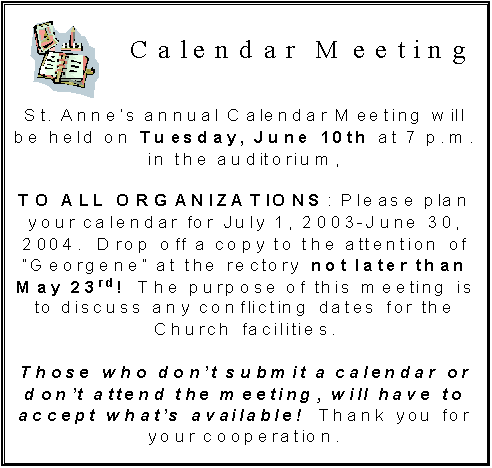
Page 9 Top
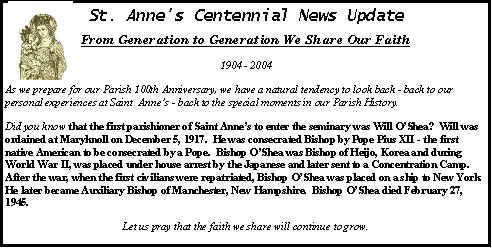
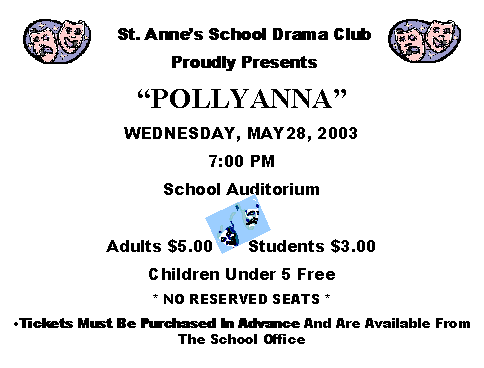
![]()